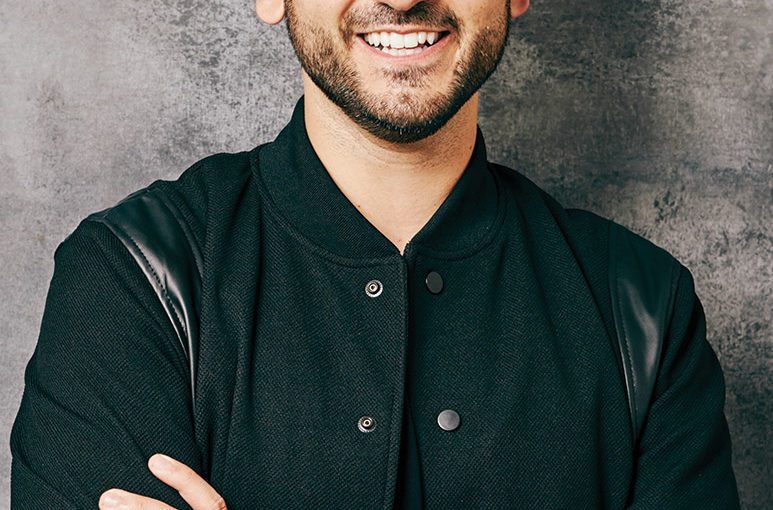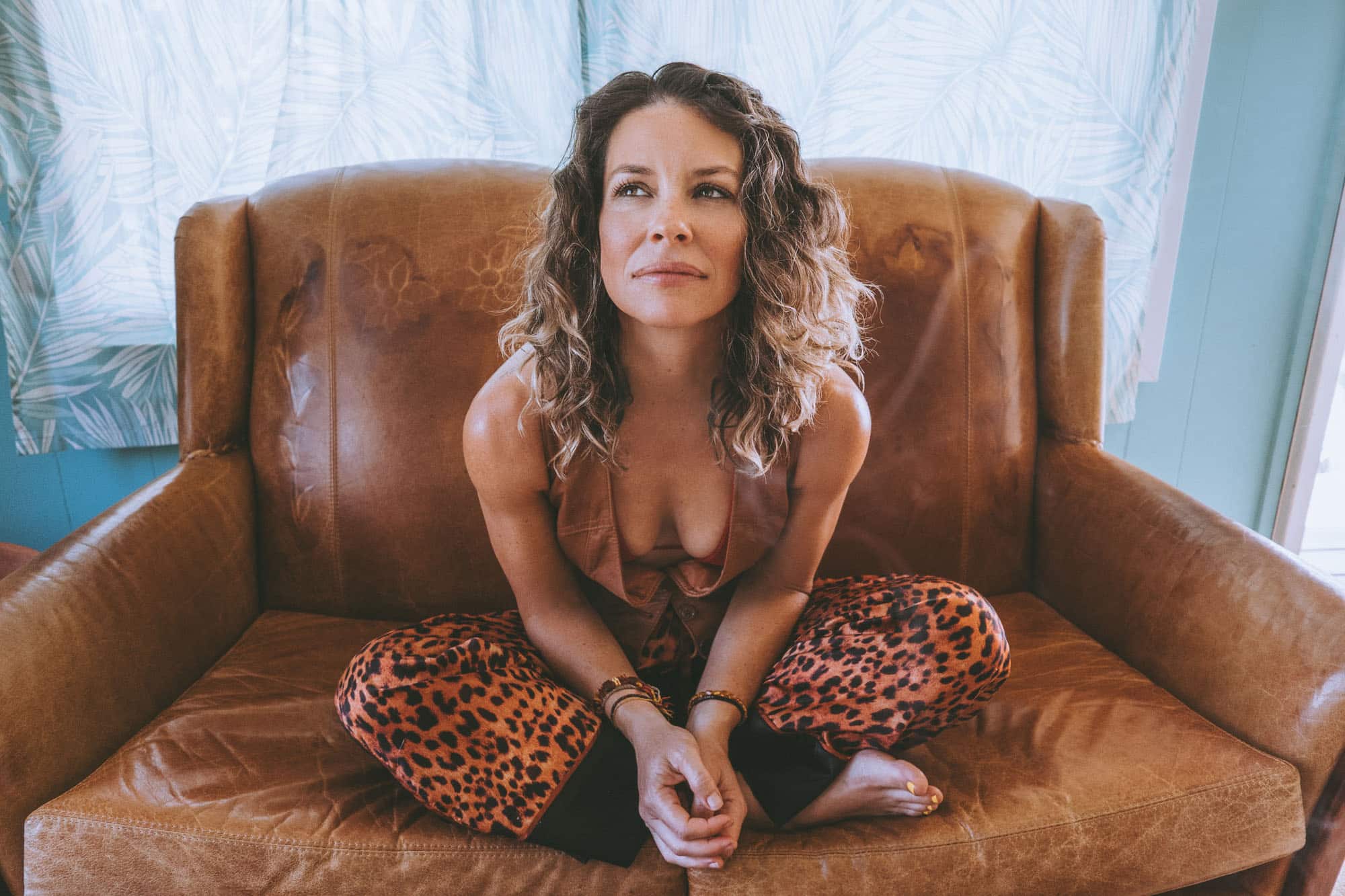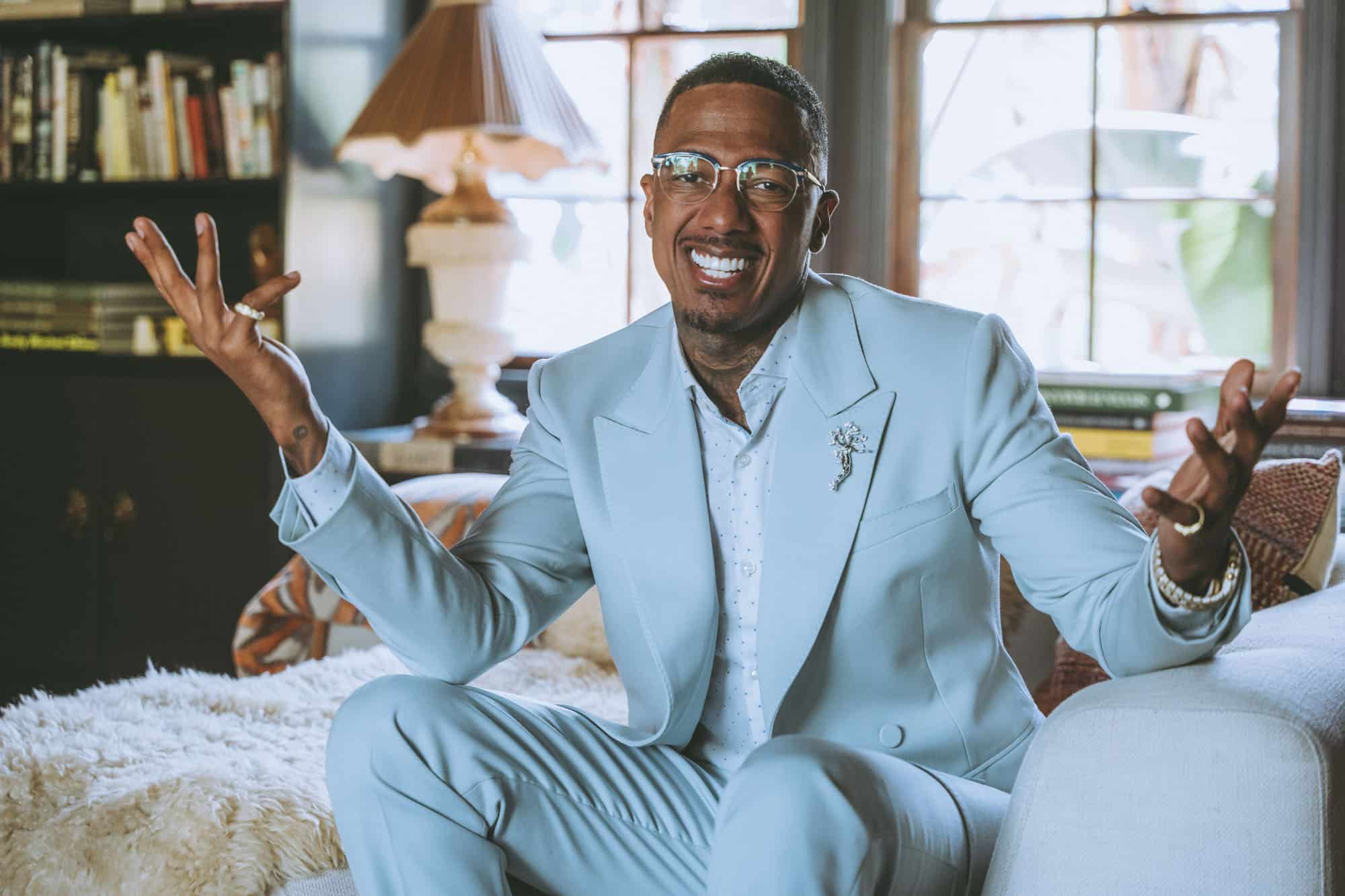[smart_track_player url=”http://traffic.libsyn.com/nionradio/146_-_Nion_Radio_-_Alex_Banayan.mp3″ title=”How Uncommon Thinking Leads to Unimaginable Opportunity” artist=”Alex Banayan” image=”https://nionlife.com/wp-content/uploads/2018/05/unnamed-1.jpg” color=”#de4b9b” ]
“It’s not about how quick the story is, it’s about how fun and entertaining the story is.”
Hey guys, welcome back to ONKEN RADIO (formerly NION Radio), the podcast where we explore the body, mind, and soul of the creative entrepreneur. It’s my goal to help you take your creativity, business, and life to the next level. I’m so glad you’re joining me on this journey!
Today, I’ve got a very special guest on my show. His name is Alex Banayan, and he authored the groundbreaking book The Third Door: The Wild Quest to Uncover How the World’s Most Successful People Launched Their Careers.
Alex is an awesome guy, and I especially wanted him on the show because his book is all about the business side of creative entrepreneurship. In this interview, we’re discussing his journey from being a freshman pre-med student to becoming a bestselling author, how to write a good story, the meaning behind “the third door,” and how to break into your creative industry. You’re going to learn a whole lot about success and storytelling from Alex, and you’re also going to be entertained on the way, so let’s dive in!
Who Is Alex Banayan?
Alex Banayan is the #1 International Bestselling Author of The Third Door. Alex started the book while he was a freshman in college, and it took him seven years to complete it. He learned countless lessons from the people he interviewed for the book and from the writing process itself. He interviewed some of the most successful people of all time, including Bill Gates, Lady Gaga, Larry King, and many more.
Alex began his journey writing The Third Door from his freshman dorm room at the University of South California. From a young age, Alex’s parents pushed him to become a Doctor of Medicine. He always assumed that he would become a doctor, and he never planned to do anything else with his career. He even wore scrubs for Halloween as a child and attended pre-med summer school programs. But once he entered the pre-med program at USC, he found that becoming a doctor may not be the path for him.
“I started to feel like something was off. I couldn’t put my finger on it. … I remember lying on my dorm room bed, staring over at this stack of biology books and feeling like they were sucking the life out of me. … Then I started to wonder, ‘Maybe I’m not on my path.'” – Alex Banayan
Alex’s realization threw him into a whirlwind of confusion. He suffered a life crisis at age 18 and began searching for a new career path. He went to the library and began trying to figure out how successful individuals had started their careers. He wondered how people like Steven Spielberg and Bill Gates had changed the world at such a young age.
He poured over biographies and self-help books but found no suitable answers for his questions, so he decided to write the book himself. He came up with the idea to interview some of the world’s most successful people and find the secret to their success. Seven years later, he released The Third Door and became the youngest bestselling business author in American history.
Hacking The Price is Right
When Alex began his journey in authoring The Third Door, he realized that he would need funding to write his book. The night before finals at USC, he found what he thought might be a golden opportunity to make money.
“I’m on Facebook, and I see someone posting saying, ‘Free tickets to The Price is Right.’… [My thought] was what if I go on this show and win some money to fund this dream?” – Alex Banayan
Alex knew that the idea was absolutely absurd because going on The Price is Right would conflict with his final exams the next day, but he couldn’t stop thinking about going on the show.
“It was one of those ideas that keeps like clawing itself into your mind. So I remember in the library making this pros and cons list to prove to myself it’s a bad idea. … . There’s like 20 cons. And the only pro was maybe win[ning] enough money to fund this dream. And it felt almost as if somebody had tied a rope around my gut and was pulling in that direction.” – Alex Banayan
Alex knew that logically he should not pursue going on the show, but he followed his gut and began studying how to hack The Price is Right to get on the program.
Have you ever had a gut feeling to follow your dreams, no matter how logically absurd they may seem? The fact that Alex decided to pursue The Price is Right rather than studying for his finals may sound crazy, but he followed his gut, and ultimately, he achieved his dreams through pursuing that path. What crazy dream do you have in your gut that you need to pursue? It’s only crazy until you achieve what you’re striving for.
Alex discovered that in order to get on the show, he would need to convince a casting producer of his entertainment value during an interview. Alex met the casting producer, Stan, but failed to make an impression. He realized that his chance to get on the show was quickly slipping away and he needed to do something drastic. Alex began shouting Stan’s name at the top of his lungs.
“So like Stan runs over, and he’s like, ‘Are you okay?’… I just look at him, and I have no idea what I’m going to say. And you know, everyone is looking, and the tension is high. … And I’m just like, ‘Your scarf. … I’m an avid scarf collector. I have 362 pairs in my dorm room, and I’m missing that one.’ And he starts cracking up because I think he finally realized what I was doing.” – Alex Banayan
Alex secured his place on the show by leaving an impression on the casting producer, but he quickly realized that he had another problem: He didn’t know how to play The Price is Right. He studied how to get on the show, but he wasn’t familiar with the rules. Alex was discouraged because he thought his plan was ruined. A kind older woman inquired about why he looked upset. He informed her of his situation, and she gave him advice from her 40 years watching the show. Alex then began asking others for advice and was met with an abundance of helpful tips for winning the show.
Alex stumbled through the show but managed to make it to the final round. In the final round of The Price is Right, contestants guess the retail price of their potential prizes. Alex grossly underestimated the worth of what he could win, but the host, Drew Carey, didn’t think he was giving a serious answer.
“I’m like, … ‘$6,000, Drew.’ Dead silence. It’s as if somebody had passed away on the stage. … [Drew Carey’s] like, … ‘What’s your real answer?’… I just started pounding the podium. I’m like, ‘Audience, I need your help.’ Eventually, they start chanting this one number, … but I only hear like the ‘th’ sound … so I’m like, ‘Alright, Drew, I’m going with the audience. 30 hundred.’ And he literally grabs the mic and goes, ‘You know there’s a difference between 30 hundred and 30 thousand?’ And I’m like, ‘Of course I know that. I was just messing with you. 30 thousand.” – Alex Banayan
Alex repeatedly said the wrong answer, but he eventually delivered a guess close to the retail price and won the show. Everyone else was far more prepared and knowledgeable about how to win the show, but Alex never gave up and continuously asked for others’ help to win. He sold the prizes he won and obtained the funding he needed to write his book.
How to Tell a Good Story
Once Alex obtained the funding for his book, he began cold calling the offices of some of the people he wanted to interview. Bill Gates’ office informed Alex that he would need to build momentum with his project if he wanted an interview with Bill Gates. He then reached out to Elliot Bisnow, the co-founder of the Summit Series, for his advice for building momentum. Elliot not only responded to Alex, but he also became his mentor and taught him the importance of good storytelling.
“[Elliot] really taught me that so much of getting people to come along on your journey and to support it … is to inspire them, and the best way to inspire people is through story.” – Alex Banayan
When first meeting Elliot, Alex was reluctant to tell him about his experience on The Price is Right. Alex only told him the story after Elliot asked how he was funding his book.
“We were having breakfast, and [Elliot] like drops his fork, and he’s like, ‘You’re fucking kidding me. … We’ve been together for two hours, and you haven’t brought that up.’ And what he told me is like, ‘Never again, will you go into a meeting and not share that with someone.’… He goes, ‘Everyone has experiences in their life. Some choose to make them into stories.'” – Alex Banayan
Elliot made Alex tell his story everywhere they went. Alex was hesitant to talk about some of the more embarrassing parts of the story, but Elliot insisted that he show vulnerability and relatability by sharing the more embarrassing moments.
“As I’ve … shared the story more, I’ve realized that sharing the moments where I was the most embarrassed or the stupidest … are actually some of the most enjoyable parts of that story. … Everyone [has] fallen flat on their face. Everyone’s made mistakes. Everyone’s felt like a fool, and everyone can relate.” – Alex Banayan
During his time interviewing and writing his book, Alex learned three critical lessons to telling a good story from the legendary journalist Cal Fussman. I had Cal on Onken Radio on episodes 89 and 90, so definitely check those out once you’re done with this article!
#1. Every good story needs conflict. Regardless of what kind of story you’re telling, there always needs to be conflict driving the plot. For Alex, he faced conflict because he didn’t have any money to fund his book. Once he solved that issue with the idea of going on The Price is Right, he had another problem because the show conflicted with his final exams. Once he went on the show, he then had the conflict of not knowing how to play the game. But it was the conflict in Alex’s story that made it incredibly compelling.
“If you go into any story … there are always going to be moments of conflict … Those are the things that actually create tension. … That’s one of the most important things.” – Alex Banayan
When telling a story, make sure to have conflict that creates tension to keep your audience invested in finding out the story’s outcome.
#2. Show vulnerability. This is the exact key that Elliot showed Alex when telling his Price is Right story. He needed to share the embarrassing moments to show vulnerability. People relate to imperfections and messing up because no one is perfect. Talking about failures makes you relatable! Alex discussed how tapping into pain and embarrassment creates a human story:
“I just think whether it’s the best songwriters, the best artists, the best storytellers, it’s them opening themselves up about the things that have caused them the most pain or the most embarrassment and putting it out there. And that’s what makes for a human story.” – Alex Banayan
If you hide the parts of the story that are painful or embarrassing, then the story only exists to float your ego, and it won’t be compelling.
#3. Create grip in the story. You need to convey the heart of the story and what the essence of the story is about. Alex made a pottery analogy when describing the story’s “grip”:
“Imagine you’re like in a pottery class, and there’s all this clay spinning around. Imagine literally like gripping that clay in your hand, molding it, and throwing it down on the table. Like that’s what you need to do with a good story. … The way you get the grip or the frame of the story is you first have to understand what the essence of it is” – Alex Banayan
Alex used his chapter about Mark Zuckerberg to convey how to depict the essence of a story. His interview with Mark turned into a complete disaster, but I won’t spoil it for you because you should read the book. Alex conveyed the essence of the chapter by beginning it with two mantras:
“The opening two sentences are, ‘The founder of TED once told me I live my life by two mantras. #1. If you don’t ask, you don’t get, and #2. Most things don’t work out.’ And then the next line goes, ‘And now I had made my most far fetched ask yet, and it was working out better than I’d ever imagined.’ Now, as the reader goes into it, they’re going, ‘Oh, this is a story about things working out.’ And then they get hit at the end with it all falling apart.” – Alex Banayan
The essence that Alex was conveying was that even when you’re close to the finish line, something can still go completely wrong. This is a perfect example of how conveying your story’s essence creates a compelling grip that will engage the readers and keep them invested in your story.
How can you improve your storytelling abilities? Do you need to create more conflict, show more vulnerability, or create more of a grip? Alex and Cal Fussman are both exceptional writers, so follow their lead and improve your storytelling abilities.
The Third Door: There’s Always a Way In
Alex and I also discussed the meaning behind his book’s title The Third Door. The third door is the key to the careers of some of the most successful people in America. Bill Gates, Steven Spielberg, Warren Buffet, and countless other successful individuals used the third door.
So what exactly is the third door?
“[Becoming successful] is sort of like getting into a nightclub. So there’s always three ways in. There’s the first door where everybody waits in line, hoping to get in. … And then there’s the second door [or] the VIP entrance, where the billionaires and the celebrities go through. … The third door [is] the door where you jump out of line, run down the alley, bang on the door a hundred times, crack open the window, [or] go through the kitchen. There’s always a way in. … So that’s not only the title of the book … That’s really the energy I’m trying to inject into the reader.” – Alex Banayan
The most successful people didn’t start their journeys on a conventional career path or start with celebrity connections — they found an alternative way into the nightclub.
For example, just look at Alex’s story. He found an alternative way into success by going on a game show and sending emails to immensely successful people that he didn’t know. He didn’t wait around and try to become a writer in a conventional way. He found an alternative way in and wrote his bestselling book. For me, photography was my third door. It got me into places and inner circles that I wouldn’t have gotten into otherwise.
The awesome thing about the third door analogy is that once you realize that there’s always a way in, you’re going to find that way in:
“There’s always a way. … You have this third door analogy, and [when] you’re subscribed to it, instantly what happens is you start believing there’s always a way. … You’re like, ‘There has to be a way.’ And what I’ve learned is that when you change what you believe is possible, you change what becomes possible. And that changes everything.” – Alex Banayan
Believing in the third door opens up what is possible in your life. You’ll find that alternative way into your desired career field. So how can you find the third door in your life? Look for unconventional opportunities to break into your field, and never stop networking to find people who can get you into the right places to build your career.
Become a Creative Alchemist with Alex Banayan
Alchemy is defined as the process of taking something ordinary and turning it into something extraordinary, sometimes in a way that cannot be explained.
With that being said, I define Creative Alchemy as using the process of creativity to create a lens of which to perform alchemy. These principles not only apply to artists and creatives in their own creative processes but to anyone who wants to create an extraordinary life in color for themselves. I’ve found that 80% of creating is alchemizing the thoughts, emotions, and other inner blocks that keep you from putting the pen to the paper. Navigating to the act of creation takes alchemical processes, and Alex Banayan does this through words and ideas.
I had such an amazing time talking with Alex Banayan. His journey writing The Third Door is so fascinating and such an awesome reminder that you really can do anything. Alex was able to write his dream book by taking the third door, and you can achieve what you aspire to do if you keep looking for your third door.
Make sure to pick up The Third Door, and follow Alex on Instagram, @alexbanayan, Twitter, @AlexBanayan, and Facebook, @AlexBanayan.
Thank you so much for checking out today’s episode! If you enjoyed it as much as I did, make sure to share it on Instagram! Tag Alex, @alexbanayan, and me, @nickonken, and share how this episode inspired you to seek out your third door. Also, make sure to leave me a five-star review on Apple Podcasts so that I can share this with more Creative Alchemists like you!
Remember, there’s always a way to make your creative dreams become a reality. Never stop searching for your third door to success!
Until next time,
Nick Onken
“It’s not always the most famous or most powerful people that have the best advice.”
Some things we learn in this podcast:
- Listen to Alex tell the story of how he won The Price is Right [5:05]
- What he learned from Elliott Bisnow about storytelling [29:20]
- Why it’s important to share the relatable moments [32:50]
- Alex’s top three tips to tell a compelling story [34:20]
- What are the three doors [41:00]
- What is “the flinch” [44:15]
- What lessons Alex learned from writing the book [54:00]
- Find out what Alex’s favorite books are [55:45]
- How to stay resilient in the face of rejection [1:02:15]
- What women Alex would love to interview [1:06:00]
Links mentioned:
- Get a copy of Alex’s book The Third Door
- Check out Summit Series
- Listen to Cal Fussman’s episode
- Read the books mentioned by Alex:
Connect with Alex on Instagram | Twitter | Third Door Book
LET'S CONSPIRE & CREATE
CULTIVATING YOUR VISUAL UNIQUENESS AND STREAMLINING YOUR BRAND'S EVOLUTION
[smart_track_player url=”http://traffic.libsyn.com/nionradio/146_-_Nion_Radio_-_Alex_Banayan.mp3″ title=”How Uncommon Thinking Leads to Unimaginable Opportunity” artist=”Alex Banayan” image=”https://nionlife.com/wp-content/uploads/2018/05/unnamed-1.jpg” color=”#de4b9b” ]
“It’s not about how quick the story is, it’s about how fun and entertaining the story is.”
Hey guys, welcome back to ONKEN RADIO (formerly NION Radio), the podcast where we explore the body, mind, and soul of the creative entrepreneur. It’s my goal to help you take your creativity, business, and life to the next level. I’m so glad you’re joining me on this journey!
Today, I’ve got a very special guest on my show. His name is Alex Banayan, and he authored the groundbreaking book The Third Door: The Wild Quest to Uncover How the World’s Most Successful People Launched Their Careers.
Alex is an awesome guy, and I especially wanted him on the show because his book is all about the business side of creative entrepreneurship. In this interview, we’re discussing his journey from being a freshman pre-med student to becoming a bestselling author, how to write a good story, the meaning behind “the third door,” and how to break into your creative industry. You’re going to learn a whole lot about success and storytelling from Alex, and you’re also going to be entertained on the way, so let’s dive in!
Who Is Alex Banayan?
Alex Banayan is the #1 International Bestselling Author of The Third Door. Alex started the book while he was a freshman in college, and it took him seven years to complete it. He learned countless lessons from the people he interviewed for the book and from the writing process itself. He interviewed some of the most successful people of all time, including Bill Gates, Lady Gaga, Larry King, and many more.
Alex began his journey writing The Third Door from his freshman dorm room at the University of South California. From a young age, Alex’s parents pushed him to become a Doctor of Medicine. He always assumed that he would become a doctor, and he never planned to do anything else with his career. He even wore scrubs for Halloween as a child and attended pre-med summer school programs. But once he entered the pre-med program at USC, he found that becoming a doctor may not be the path for him.
“I started to feel like something was off. I couldn’t put my finger on it. … I remember lying on my dorm room bed, staring over at this stack of biology books and feeling like they were sucking the life out of me. … Then I started to wonder, ‘Maybe I’m not on my path.'” – Alex Banayan
Alex’s realization threw him into a whirlwind of confusion. He suffered a life crisis at age 18 and began searching for a new career path. He went to the library and began trying to figure out how successful individuals had started their careers. He wondered how people like Steven Spielberg and Bill Gates had changed the world at such a young age.
He poured over biographies and self-help books but found no suitable answers for his questions, so he decided to write the book himself. He came up with the idea to interview some of the world’s most successful people and find the secret to their success. Seven years later, he released The Third Door and became the youngest bestselling business author in American history.
Hacking The Price is Right
When Alex began his journey in authoring The Third Door, he realized that he would need funding to write his book. The night before finals at USC, he found what he thought might be a golden opportunity to make money.
“I’m on Facebook, and I see someone posting saying, ‘Free tickets to The Price is Right.’… [My thought] was what if I go on this show and win some money to fund this dream?” – Alex Banayan
Alex knew that the idea was absolutely absurd because going on The Price is Right would conflict with his final exams the next day, but he couldn’t stop thinking about going on the show.
“It was one of those ideas that keeps like clawing itself into your mind. So I remember in the library making this pros and cons list to prove to myself it’s a bad idea. … . There’s like 20 cons. And the only pro was maybe win[ning] enough money to fund this dream. And it felt almost as if somebody had tied a rope around my gut and was pulling in that direction.” – Alex Banayan
Alex knew that logically he should not pursue going on the show, but he followed his gut and began studying how to hack The Price is Right to get on the program.
Have you ever had a gut feeling to follow your dreams, no matter how logically absurd they may seem? The fact that Alex decided to pursue The Price is Right rather than studying for his finals may sound crazy, but he followed his gut, and ultimately, he achieved his dreams through pursuing that path. What crazy dream do you have in your gut that you need to pursue? It’s only crazy until you achieve what you’re striving for.
Alex discovered that in order to get on the show, he would need to convince a casting producer of his entertainment value during an interview. Alex met the casting producer, Stan, but failed to make an impression. He realized that his chance to get on the show was quickly slipping away and he needed to do something drastic. Alex began shouting Stan’s name at the top of his lungs.
“So like Stan runs over, and he’s like, ‘Are you okay?’… I just look at him, and I have no idea what I’m going to say. And you know, everyone is looking, and the tension is high. … And I’m just like, ‘Your scarf. … I’m an avid scarf collector. I have 362 pairs in my dorm room, and I’m missing that one.’ And he starts cracking up because I think he finally realized what I was doing.” – Alex Banayan
Alex secured his place on the show by leaving an impression on the casting producer, but he quickly realized that he had another problem: He didn’t know how to play The Price is Right. He studied how to get on the show, but he wasn’t familiar with the rules. Alex was discouraged because he thought his plan was ruined. A kind older woman inquired about why he looked upset. He informed her of his situation, and she gave him advice from her 40 years watching the show. Alex then began asking others for advice and was met with an abundance of helpful tips for winning the show.
Alex stumbled through the show but managed to make it to the final round. In the final round of The Price is Right, contestants guess the retail price of their potential prizes. Alex grossly underestimated the worth of what he could win, but the host, Drew Carey, didn’t think he was giving a serious answer.
“I’m like, … ‘$6,000, Drew.’ Dead silence. It’s as if somebody had passed away on the stage. … [Drew Carey’s] like, … ‘What’s your real answer?’… I just started pounding the podium. I’m like, ‘Audience, I need your help.’ Eventually, they start chanting this one number, … but I only hear like the ‘th’ sound … so I’m like, ‘Alright, Drew, I’m going with the audience. 30 hundred.’ And he literally grabs the mic and goes, ‘You know there’s a difference between 30 hundred and 30 thousand?’ And I’m like, ‘Of course I know that. I was just messing with you. 30 thousand.” – Alex Banayan
Alex repeatedly said the wrong answer, but he eventually delivered a guess close to the retail price and won the show. Everyone else was far more prepared and knowledgeable about how to win the show, but Alex never gave up and continuously asked for others’ help to win. He sold the prizes he won and obtained the funding he needed to write his book.
How to Tell a Good Story
Once Alex obtained the funding for his book, he began cold calling the offices of some of the people he wanted to interview. Bill Gates’ office informed Alex that he would need to build momentum with his project if he wanted an interview with Bill Gates. He then reached out to Elliot Bisnow, the co-founder of the Summit Series, for his advice for building momentum. Elliot not only responded to Alex, but he also became his mentor and taught him the importance of good storytelling.
“[Elliot] really taught me that so much of getting people to come along on your journey and to support it … is to inspire them, and the best way to inspire people is through story.” – Alex Banayan
When first meeting Elliot, Alex was reluctant to tell him about his experience on The Price is Right. Alex only told him the story after Elliot asked how he was funding his book.
“We were having breakfast, and [Elliot] like drops his fork, and he’s like, ‘You’re fucking kidding me. … We’ve been together for two hours, and you haven’t brought that up.’ And what he told me is like, ‘Never again, will you go into a meeting and not share that with someone.’… He goes, ‘Everyone has experiences in their life. Some choose to make them into stories.'” – Alex Banayan
Elliot made Alex tell his story everywhere they went. Alex was hesitant to talk about some of the more embarrassing parts of the story, but Elliot insisted that he show vulnerability and relatability by sharing the more embarrassing moments.
“As I’ve … shared the story more, I’ve realized that sharing the moments where I was the most embarrassed or the stupidest … are actually some of the most enjoyable parts of that story. … Everyone [has] fallen flat on their face. Everyone’s made mistakes. Everyone’s felt like a fool, and everyone can relate.” – Alex Banayan
During his time interviewing and writing his book, Alex learned three critical lessons to telling a good story from the legendary journalist Cal Fussman. I had Cal on Onken Radio on episodes 89 and 90, so definitely check those out once you’re done with this article!
#1. Every good story needs conflict. Regardless of what kind of story you’re telling, there always needs to be conflict driving the plot. For Alex, he faced conflict because he didn’t have any money to fund his book. Once he solved that issue with the idea of going on The Price is Right, he had another problem because the show conflicted with his final exams. Once he went on the show, he then had the conflict of not knowing how to play the game. But it was the conflict in Alex’s story that made it incredibly compelling.
“If you go into any story … there are always going to be moments of conflict … Those are the things that actually create tension. … That’s one of the most important things.” – Alex Banayan
When telling a story, make sure to have conflict that creates tension to keep your audience invested in finding out the story’s outcome.
#2. Show vulnerability. This is the exact key that Elliot showed Alex when telling his Price is Right story. He needed to share the embarrassing moments to show vulnerability. People relate to imperfections and messing up because no one is perfect. Talking about failures makes you relatable! Alex discussed how tapping into pain and embarrassment creates a human story:
“I just think whether it’s the best songwriters, the best artists, the best storytellers, it’s them opening themselves up about the things that have caused them the most pain or the most embarrassment and putting it out there. And that’s what makes for a human story.” – Alex Banayan
If you hide the parts of the story that are painful or embarrassing, then the story only exists to float your ego, and it won’t be compelling.
#3. Create grip in the story. You need to convey the heart of the story and what the essence of the story is about. Alex made a pottery analogy when describing the story’s “grip”:
“Imagine you’re like in a pottery class, and there’s all this clay spinning around. Imagine literally like gripping that clay in your hand, molding it, and throwing it down on the table. Like that’s what you need to do with a good story. … The way you get the grip or the frame of the story is you first have to understand what the essence of it is” – Alex Banayan
Alex used his chapter about Mark Zuckerberg to convey how to depict the essence of a story. His interview with Mark turned into a complete disaster, but I won’t spoil it for you because you should read the book. Alex conveyed the essence of the chapter by beginning it with two mantras:
“The opening two sentences are, ‘The founder of TED once told me I live my life by two mantras. #1. If you don’t ask, you don’t get, and #2. Most things don’t work out.’ And then the next line goes, ‘And now I had made my most far fetched ask yet, and it was working out better than I’d ever imagined.’ Now, as the reader goes into it, they’re going, ‘Oh, this is a story about things working out.’ And then they get hit at the end with it all falling apart.” – Alex Banayan
The essence that Alex was conveying was that even when you’re close to the finish line, something can still go completely wrong. This is a perfect example of how conveying your story’s essence creates a compelling grip that will engage the readers and keep them invested in your story.
How can you improve your storytelling abilities? Do you need to create more conflict, show more vulnerability, or create more of a grip? Alex and Cal Fussman are both exceptional writers, so follow their lead and improve your storytelling abilities.
The Third Door: There’s Always a Way In
Alex and I also discussed the meaning behind his book’s title The Third Door. The third door is the key to the careers of some of the most successful people in America. Bill Gates, Steven Spielberg, Warren Buffet, and countless other successful individuals used the third door.
So what exactly is the third door?
“[Becoming successful] is sort of like getting into a nightclub. So there’s always three ways in. There’s the first door where everybody waits in line, hoping to get in. … And then there’s the second door [or] the VIP entrance, where the billionaires and the celebrities go through. … The third door [is] the door where you jump out of line, run down the alley, bang on the door a hundred times, crack open the window, [or] go through the kitchen. There’s always a way in. … So that’s not only the title of the book … That’s really the energy I’m trying to inject into the reader.” – Alex Banayan
The most successful people didn’t start their journeys on a conventional career path or start with celebrity connections — they found an alternative way into the nightclub.
For example, just look at Alex’s story. He found an alternative way into success by going on a game show and sending emails to immensely successful people that he didn’t know. He didn’t wait around and try to become a writer in a conventional way. He found an alternative way in and wrote his bestselling book. For me, photography was my third door. It got me into places and inner circles that I wouldn’t have gotten into otherwise.
The awesome thing about the third door analogy is that once you realize that there’s always a way in, you’re going to find that way in:
“There’s always a way. … You have this third door analogy, and [when] you’re subscribed to it, instantly what happens is you start believing there’s always a way. … You’re like, ‘There has to be a way.’ And what I’ve learned is that when you change what you believe is possible, you change what becomes possible. And that changes everything.” – Alex Banayan
Believing in the third door opens up what is possible in your life. You’ll find that alternative way into your desired career field. So how can you find the third door in your life? Look for unconventional opportunities to break into your field, and never stop networking to find people who can get you into the right places to build your career.
Become a Creative Alchemist with Alex Banayan
Alchemy is defined as the process of taking something ordinary and turning it into something extraordinary, sometimes in a way that cannot be explained.
With that being said, I define Creative Alchemy as using the process of creativity to create a lens of which to perform alchemy. These principles not only apply to artists and creatives in their own creative processes but to anyone who wants to create an extraordinary life in color for themselves. I’ve found that 80% of creating is alchemizing the thoughts, emotions, and other inner blocks that keep you from putting the pen to the paper. Navigating to the act of creation takes alchemical processes, and Alex Banayan does this through words and ideas.
I had such an amazing time talking with Alex Banayan. His journey writing The Third Door is so fascinating and such an awesome reminder that you really can do anything. Alex was able to write his dream book by taking the third door, and you can achieve what you aspire to do if you keep looking for your third door.
Make sure to pick up The Third Door, and follow Alex on Instagram, @alexbanayan, Twitter, @AlexBanayan, and Facebook, @AlexBanayan.
Thank you so much for checking out today’s episode! If you enjoyed it as much as I did, make sure to share it on Instagram! Tag Alex, @alexbanayan, and me, @nickonken, and share how this episode inspired you to seek out your third door. Also, make sure to leave me a five-star review on Apple Podcasts so that I can share this with more Creative Alchemists like you!
Remember, there’s always a way to make your creative dreams become a reality. Never stop searching for your third door to success!
Until next time,
Nick Onken
“It’s not always the most famous or most powerful people that have the best advice.”
Some things we learn in this podcast:
- Listen to Alex tell the story of how he won The Price is Right [5:05]
- What he learned from Elliott Bisnow about storytelling [29:20]
- Why it’s important to share the relatable moments [32:50]
- Alex’s top three tips to tell a compelling story [34:20]
- What are the three doors [41:00]
- What is “the flinch” [44:15]
- What lessons Alex learned from writing the book [54:00]
- Find out what Alex’s favorite books are [55:45]
- How to stay resilient in the face of rejection [1:02:15]
- What women Alex would love to interview [1:06:00]
Links mentioned:
- Get a copy of Alex’s book The Third Door
- Check out Summit Series
- Listen to Cal Fussman’s episode
- Read the books mentioned by Alex:
Connect with Alex on Instagram | Twitter | Third Door Book

6/04/18
146: Alex Banayan – How Uncommon Thinking Leads to Unimaginable Opportunity
infuse your vision with a fresh breath of creativity and vitality
BOOK A BRAND PHOTOSHOOT
GET THE DETAILS
GET THE DETAILS
infuse your vision with a fresh breath of creativity and vitality
PODCAST
BRAND INTELLIGENCE
CREATIVE INTELLIGENCE
LIFE INTELLIGENCE

masterfully aligning perception and reality through personal branding



masterfully aligning perception and reality through personal branding


[smart_track_player url=”http://traffic.libsyn.com/nionradio/146_-_Nion_Radio_-_Alex_Banayan.mp3″ title=”How Uncommon Thinking Leads to Unimaginable Opportunity” artist=”Alex Banayan” image=”https://nionlife.com/wp-content/uploads/2018/05/unnamed-1.jpg” color=”#de4b9b” ]
“It’s not about how quick the story is, it’s about how fun and entertaining the story is.”
Hey guys, welcome back to ONKEN RADIO (formerly NION Radio), the podcast where we explore the body, mind, and soul of the creative entrepreneur. It’s my goal to help you take your creativity, business, and life to the next level. I’m so glad you’re joining me on this journey!
Today, I’ve got a very special guest on my show. His name is Alex Banayan, and he authored the groundbreaking book The Third Door: The Wild Quest to Uncover How the World’s Most Successful People Launched Their Careers.
Alex is an awesome guy, and I especially wanted him on the show because his book is all about the business side of creative entrepreneurship. In this interview, we’re discussing his journey from being a freshman pre-med student to becoming a bestselling author, how to write a good story, the meaning behind “the third door,” and how to break into your creative industry. You’re going to learn a whole lot about success and storytelling from Alex, and you’re also going to be entertained on the way, so let’s dive in!
Who Is Alex Banayan?
Alex Banayan is the #1 International Bestselling Author of The Third Door. Alex started the book while he was a freshman in college, and it took him seven years to complete it. He learned countless lessons from the people he interviewed for the book and from the writing process itself. He interviewed some of the most successful people of all time, including Bill Gates, Lady Gaga, Larry King, and many more.
Alex began his journey writing The Third Door from his freshman dorm room at the University of South California. From a young age, Alex’s parents pushed him to become a Doctor of Medicine. He always assumed that he would become a doctor, and he never planned to do anything else with his career. He even wore scrubs for Halloween as a child and attended pre-med summer school programs. But once he entered the pre-med program at USC, he found that becoming a doctor may not be the path for him.
“I started to feel like something was off. I couldn’t put my finger on it. … I remember lying on my dorm room bed, staring over at this stack of biology books and feeling like they were sucking the life out of me. … Then I started to wonder, ‘Maybe I’m not on my path.'” – Alex Banayan
Alex’s realization threw him into a whirlwind of confusion. He suffered a life crisis at age 18 and began searching for a new career path. He went to the library and began trying to figure out how successful individuals had started their careers. He wondered how people like Steven Spielberg and Bill Gates had changed the world at such a young age.
He poured over biographies and self-help books but found no suitable answers for his questions, so he decided to write the book himself. He came up with the idea to interview some of the world’s most successful people and find the secret to their success. Seven years later, he released The Third Door and became the youngest bestselling business author in American history.
Hacking The Price is Right
When Alex began his journey in authoring The Third Door, he realized that he would need funding to write his book. The night before finals at USC, he found what he thought might be a golden opportunity to make money.
“I’m on Facebook, and I see someone posting saying, ‘Free tickets to The Price is Right.’… [My thought] was what if I go on this show and win some money to fund this dream?” – Alex Banayan
Alex knew that the idea was absolutely absurd because going on The Price is Right would conflict with his final exams the next day, but he couldn’t stop thinking about going on the show.
“It was one of those ideas that keeps like clawing itself into your mind. So I remember in the library making this pros and cons list to prove to myself it’s a bad idea. … . There’s like 20 cons. And the only pro was maybe win[ning] enough money to fund this dream. And it felt almost as if somebody had tied a rope around my gut and was pulling in that direction.” – Alex Banayan
Alex knew that logically he should not pursue going on the show, but he followed his gut and began studying how to hack The Price is Right to get on the program.
Have you ever had a gut feeling to follow your dreams, no matter how logically absurd they may seem? The fact that Alex decided to pursue The Price is Right rather than studying for his finals may sound crazy, but he followed his gut, and ultimately, he achieved his dreams through pursuing that path. What crazy dream do you have in your gut that you need to pursue? It’s only crazy until you achieve what you’re striving for.
Alex discovered that in order to get on the show, he would need to convince a casting producer of his entertainment value during an interview. Alex met the casting producer, Stan, but failed to make an impression. He realized that his chance to get on the show was quickly slipping away and he needed to do something drastic. Alex began shouting Stan’s name at the top of his lungs.
“So like Stan runs over, and he’s like, ‘Are you okay?’… I just look at him, and I have no idea what I’m going to say. And you know, everyone is looking, and the tension is high. … And I’m just like, ‘Your scarf. … I’m an avid scarf collector. I have 362 pairs in my dorm room, and I’m missing that one.’ And he starts cracking up because I think he finally realized what I was doing.” – Alex Banayan
Alex secured his place on the show by leaving an impression on the casting producer, but he quickly realized that he had another problem: He didn’t know how to play The Price is Right. He studied how to get on the show, but he wasn’t familiar with the rules. Alex was discouraged because he thought his plan was ruined. A kind older woman inquired about why he looked upset. He informed her of his situation, and she gave him advice from her 40 years watching the show. Alex then began asking others for advice and was met with an abundance of helpful tips for winning the show.
Alex stumbled through the show but managed to make it to the final round. In the final round of The Price is Right, contestants guess the retail price of their potential prizes. Alex grossly underestimated the worth of what he could win, but the host, Drew Carey, didn’t think he was giving a serious answer.
“I’m like, … ‘$6,000, Drew.’ Dead silence. It’s as if somebody had passed away on the stage. … [Drew Carey’s] like, … ‘What’s your real answer?’… I just started pounding the podium. I’m like, ‘Audience, I need your help.’ Eventually, they start chanting this one number, … but I only hear like the ‘th’ sound … so I’m like, ‘Alright, Drew, I’m going with the audience. 30 hundred.’ And he literally grabs the mic and goes, ‘You know there’s a difference between 30 hundred and 30 thousand?’ And I’m like, ‘Of course I know that. I was just messing with you. 30 thousand.” – Alex Banayan
Alex repeatedly said the wrong answer, but he eventually delivered a guess close to the retail price and won the show. Everyone else was far more prepared and knowledgeable about how to win the show, but Alex never gave up and continuously asked for others’ help to win. He sold the prizes he won and obtained the funding he needed to write his book.
How to Tell a Good Story
Once Alex obtained the funding for his book, he began cold calling the offices of some of the people he wanted to interview. Bill Gates’ office informed Alex that he would need to build momentum with his project if he wanted an interview with Bill Gates. He then reached out to Elliot Bisnow, the co-founder of the Summit Series, for his advice for building momentum. Elliot not only responded to Alex, but he also became his mentor and taught him the importance of good storytelling.
“[Elliot] really taught me that so much of getting people to come along on your journey and to support it … is to inspire them, and the best way to inspire people is through story.” – Alex Banayan
When first meeting Elliot, Alex was reluctant to tell him about his experience on The Price is Right. Alex only told him the story after Elliot asked how he was funding his book.
“We were having breakfast, and [Elliot] like drops his fork, and he’s like, ‘You’re fucking kidding me. … We’ve been together for two hours, and you haven’t brought that up.’ And what he told me is like, ‘Never again, will you go into a meeting and not share that with someone.’… He goes, ‘Everyone has experiences in their life. Some choose to make them into stories.'” – Alex Banayan
Elliot made Alex tell his story everywhere they went. Alex was hesitant to talk about some of the more embarrassing parts of the story, but Elliot insisted that he show vulnerability and relatability by sharing the more embarrassing moments.
“As I’ve … shared the story more, I’ve realized that sharing the moments where I was the most embarrassed or the stupidest … are actually some of the most enjoyable parts of that story. … Everyone [has] fallen flat on their face. Everyone’s made mistakes. Everyone’s felt like a fool, and everyone can relate.” – Alex Banayan
During his time interviewing and writing his book, Alex learned three critical lessons to telling a good story from the legendary journalist Cal Fussman. I had Cal on Onken Radio on episodes 89 and 90, so definitely check those out once you’re done with this article!
#1. Every good story needs conflict. Regardless of what kind of story you’re telling, there always needs to be conflict driving the plot. For Alex, he faced conflict because he didn’t have any money to fund his book. Once he solved that issue with the idea of going on The Price is Right, he had another problem because the show conflicted with his final exams. Once he went on the show, he then had the conflict of not knowing how to play the game. But it was the conflict in Alex’s story that made it incredibly compelling.
“If you go into any story … there are always going to be moments of conflict … Those are the things that actually create tension. … That’s one of the most important things.” – Alex Banayan
When telling a story, make sure to have conflict that creates tension to keep your audience invested in finding out the story’s outcome.
#2. Show vulnerability. This is the exact key that Elliot showed Alex when telling his Price is Right story. He needed to share the embarrassing moments to show vulnerability. People relate to imperfections and messing up because no one is perfect. Talking about failures makes you relatable! Alex discussed how tapping into pain and embarrassment creates a human story:
“I just think whether it’s the best songwriters, the best artists, the best storytellers, it’s them opening themselves up about the things that have caused them the most pain or the most embarrassment and putting it out there. And that’s what makes for a human story.” – Alex Banayan
If you hide the parts of the story that are painful or embarrassing, then the story only exists to float your ego, and it won’t be compelling.
#3. Create grip in the story. You need to convey the heart of the story and what the essence of the story is about. Alex made a pottery analogy when describing the story’s “grip”:
“Imagine you’re like in a pottery class, and there’s all this clay spinning around. Imagine literally like gripping that clay in your hand, molding it, and throwing it down on the table. Like that’s what you need to do with a good story. … The way you get the grip or the frame of the story is you first have to understand what the essence of it is” – Alex Banayan
Alex used his chapter about Mark Zuckerberg to convey how to depict the essence of a story. His interview with Mark turned into a complete disaster, but I won’t spoil it for you because you should read the book. Alex conveyed the essence of the chapter by beginning it with two mantras:
“The opening two sentences are, ‘The founder of TED once told me I live my life by two mantras. #1. If you don’t ask, you don’t get, and #2. Most things don’t work out.’ And then the next line goes, ‘And now I had made my most far fetched ask yet, and it was working out better than I’d ever imagined.’ Now, as the reader goes into it, they’re going, ‘Oh, this is a story about things working out.’ And then they get hit at the end with it all falling apart.” – Alex Banayan
The essence that Alex was conveying was that even when you’re close to the finish line, something can still go completely wrong. This is a perfect example of how conveying your story’s essence creates a compelling grip that will engage the readers and keep them invested in your story.
How can you improve your storytelling abilities? Do you need to create more conflict, show more vulnerability, or create more of a grip? Alex and Cal Fussman are both exceptional writers, so follow their lead and improve your storytelling abilities.
The Third Door: There’s Always a Way In
Alex and I also discussed the meaning behind his book’s title The Third Door. The third door is the key to the careers of some of the most successful people in America. Bill Gates, Steven Spielberg, Warren Buffet, and countless other successful individuals used the third door.
So what exactly is the third door?
“[Becoming successful] is sort of like getting into a nightclub. So there’s always three ways in. There’s the first door where everybody waits in line, hoping to get in. … And then there’s the second door [or] the VIP entrance, where the billionaires and the celebrities go through. … The third door [is] the door where you jump out of line, run down the alley, bang on the door a hundred times, crack open the window, [or] go through the kitchen. There’s always a way in. … So that’s not only the title of the book … That’s really the energy I’m trying to inject into the reader.” – Alex Banayan
The most successful people didn’t start their journeys on a conventional career path or start with celebrity connections — they found an alternative way into the nightclub.
For example, just look at Alex’s story. He found an alternative way into success by going on a game show and sending emails to immensely successful people that he didn’t know. He didn’t wait around and try to become a writer in a conventional way. He found an alternative way in and wrote his bestselling book. For me, photography was my third door. It got me into places and inner circles that I wouldn’t have gotten into otherwise.
The awesome thing about the third door analogy is that once you realize that there’s always a way in, you’re going to find that way in:
“There’s always a way. … You have this third door analogy, and [when] you’re subscribed to it, instantly what happens is you start believing there’s always a way. … You’re like, ‘There has to be a way.’ And what I’ve learned is that when you change what you believe is possible, you change what becomes possible. And that changes everything.” – Alex Banayan
Believing in the third door opens up what is possible in your life. You’ll find that alternative way into your desired career field. So how can you find the third door in your life? Look for unconventional opportunities to break into your field, and never stop networking to find people who can get you into the right places to build your career.
Become a Creative Alchemist with Alex Banayan
Alchemy is defined as the process of taking something ordinary and turning it into something extraordinary, sometimes in a way that cannot be explained.
With that being said, I define Creative Alchemy as using the process of creativity to create a lens of which to perform alchemy. These principles not only apply to artists and creatives in their own creative processes but to anyone who wants to create an extraordinary life in color for themselves. I’ve found that 80% of creating is alchemizing the thoughts, emotions, and other inner blocks that keep you from putting the pen to the paper. Navigating to the act of creation takes alchemical processes, and Alex Banayan does this through words and ideas.
I had such an amazing time talking with Alex Banayan. His journey writing The Third Door is so fascinating and such an awesome reminder that you really can do anything. Alex was able to write his dream book by taking the third door, and you can achieve what you aspire to do if you keep looking for your third door.
Make sure to pick up The Third Door, and follow Alex on Instagram, @alexbanayan, Twitter, @AlexBanayan, and Facebook, @AlexBanayan.
Thank you so much for checking out today’s episode! If you enjoyed it as much as I did, make sure to share it on Instagram! Tag Alex, @alexbanayan, and me, @nickonken, and share how this episode inspired you to seek out your third door. Also, make sure to leave me a five-star review on Apple Podcasts so that I can share this with more Creative Alchemists like you!
Remember, there’s always a way to make your creative dreams become a reality. Never stop searching for your third door to success!
Until next time,
Nick Onken
“It’s not always the most famous or most powerful people that have the best advice.”
Some things we learn in this podcast:
- Listen to Alex tell the story of how he won The Price is Right [5:05]
- What he learned from Elliott Bisnow about storytelling [29:20]
- Why it’s important to share the relatable moments [32:50]
- Alex’s top three tips to tell a compelling story [34:20]
- What are the three doors [41:00]
- What is “the flinch” [44:15]
- What lessons Alex learned from writing the book [54:00]
- Find out what Alex’s favorite books are [55:45]
- How to stay resilient in the face of rejection [1:02:15]
- What women Alex would love to interview [1:06:00]
Links mentioned:
- Get a copy of Alex’s book The Third Door
- Check out Summit Series
- Listen to Cal Fussman’s episode
- Read the books mentioned by Alex:
Connect with Alex on Instagram | Twitter | Third Door Book

6/04/18
146: Alex Banayan – How Uncommon Thinking Leads to Unimaginable Opportunity
When you need a trusted creative partner in the room.
Take the Fit Check
Be seen at the level you’re stepping into.
Hey! I'm Nick.
PHOTOGRAPHER
BRAND ALCHEMIST
TEACHER
At vero eos et accusamus et iusto odio dignissimos ducimus qui blanditiis praesentium voluptatum deleniti atque corrupti quos dolores et quas molestias excepturi sint occaecati cupiditate non provident, similique sunt in culpa qui officia deserunt mollitia.
Build authority from the inside out.
Emanate is a creative-direction-led photography experience for entrepreneurs, speakers, and thought leaders in a moment of expansion. This isn’t about better photos. It’s about aligning how you’re seen with who you’ve become. For seasons of rebrand, visibility, and next-level leadership.
Magnetic Authority is a self-guided container for people who feel visible, but not fully anchored.
If your message keeps shifting, your brand feels inconsistent, or your presence doesn’t match your capability yet. This is where you build the foundation before you scale.
Take the Fit Check
Start Here
For founders, creatives, and leaders who want a trusted long-term partner. This isn’t coaching or traditional consulting.
It’s an ongoing creative partnership focused on bringing your personal brand identity to life.
Your brand. Your website. Your visuals.
All shaped as a direct extension of who you are. The work also includes a bespoke process of identifying and aligning the right experts when needed, so nothing gets built out of sync with your core.
Explore the Partnership
Quiet. Precise. Highly Selective.
NEXT post
PREVIOUS post
read the latest

TL;DR – What You’ll Learn in This Post Identity does not change in theory. It changes in contact. Growth happens when something internal meets reality.Not in thought.Not in intention. In experience. This is where identity alchemy begins. What Identity Alchemy Really Means Identity alchemy is not reinvention.It is integration. It is the moment your inner […]

Nicky Clinch teaches people to dissolve their identity. So when I suggested professional photography and styling, she resisted. “Isn’t this the opposite of what I teach?” Her work is about loosening attachment to identity. Mine is about making identity visible. The paradox was real. But here’s what she discovered: you can have an identity without […]

TL;DR – What You’ll Learn in This Post Why Brand Photography Matters More for Coaches As a coach, you are the product. People are not buying information.They are buying clarity, trust, and emotional safety. Your imagery sets the tone before a single word is spoken. If your photos feel stiff, overproduced, or generic, it creates […]

TL;DR – What You’ll Learn in This Post Imagination does not create reality. Presence does. Ideas live in the mind.Vision lives in the future.But reality responds only to what is here. Nothing moves forward without presence. Not clarity.Not alignment.Not creation. Presence is not something you add.It is what remains when you stop reaching. The Gap […]

Some people do not need to perform. They simply arrive. Peter Crone is one of them. His work is quiet.Precise.Deep. So the challenge was never how to make him look impressive.It was how to let his essence lead. This case study is about what happens when imagery stops trying and starts listening. The Challenge Peter’s […]

Most celebrities spend their careers being turned into something they’re not. Magazines need a character. Brands need a fantasy. Directors need a performance. After decades of that, you forget who you actually are. Evangeline Lilly retired from acting and faced a question most people avoid: who am I when I’m not performing? The answer required […]

If you’re searching for a photographer in London who can actually capture your essence, not just your image, you’re asking the right question. Because when it comes to personal brand photography, geography matters.But frequency matters more. You don’t need just a photographer.You need a visual translator. Someone who can turn your energy, story, and identity […]

Visual identity isn’t about how you look. It’s about how you make someone feel when they first encounter you. Before anyone reads your words, they feel your presence.Before trust, there is tone.Before authority, there is resonance. This is where Elevated Realism™ lives.Not in polish.Not in perfection.In presence. The Problem With Most Brand Imagery Most visual […]

There’s something pulling at you. Not a plan. Not a strategy. Not even a clear destination. Just this persistent tug that won’t let go. You’ve probably tried to rationalize it away. To wait for more clarity. To map out the full journey before taking a step. But here’s what I’ve learned after years of building […]

What happens when your inner transformation meets visual expression? When Caoimhe Harrison came to me, she wasn’t just looking for new photos. She was mid-evolution. Her coaching practice had deepened. Her energy had shifted. And the version of her that existed online no longer matched the woman she was becoming. She didn’t need a rebrand. […]

(For the Financial Brains Who Don’t Get It Yet) Let’s talk numbers. Just not the ones you’re used to. If you’re financially minded, you’ve probably asked this question before:“How does photography actually pay me back?” It’s fair. You’re not looking for vibes.You want leverage. Personal brand photography often gets dismissed as “nice to have” because […]

Most photographers compete on price. The best ones don’t compete at all. If you’ve ever looked at photographer pricing and wondered why some charge $500 while others charge $5,000 for what looks like the same service, you’re asking the right question. The answer isn’t about skill. It’s about authority. Two photographers can have identical technical […]

A Free Download for Aligned, Effortless Shoots Most photoshoots fail before the camera ever comes out. Not because of lighting.Not because of gear.Not because of posing. They fail because of misalignment. People show up hoping the camera will figure out what they haven’t clarified yet.And the result is predictable. Good photos.Wrong signal. This checklist exists […]
About the Blogger
I was born in a low middle class conservative religious family in the suburbs of Seattle. Art was and always has been my passion, and more than that a way of life. Starting as a graphic designer, I taught myself photography, built a commercial/editorial business shooting for the worlds biggest brands like Nike, Coca-Cola, Adidas and more. I've also had the opportunity to photograph the world's biggest celebrities like Justin Bieber, Usher, Jessica Alba and more. I've curated a lifestyle around creativity and have learned a lot along the way which I get to share here.
I was born in a low middle class conservative religious family in the suburbs of Seattle. Art was and always has been my passion, and more than that a way of life. Starting as a graphic designer, I taught myself photography, built a commercial/editorial business shooting for the worlds biggest brands like Nike, Coca-Cola, Adidas and more. I've also had the opportunity to photograph the world's biggest celebrities like Justin Bieber, Usher, Jessica Alba and more. I've curated a lifestyle around creativity and have learned a lot along the way which I get to share here.